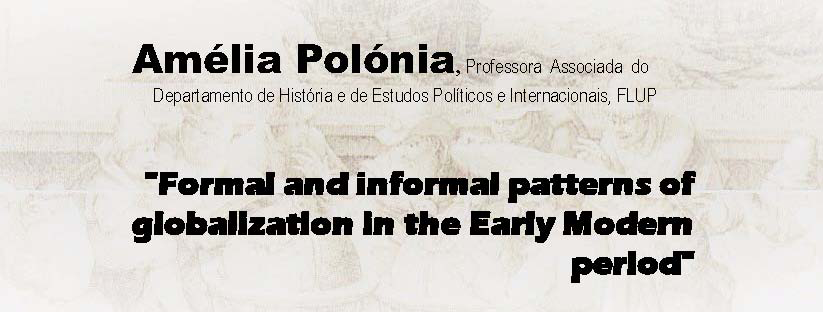
Pormenor da capa do livro "Mechanisms of Global Empire Building", editado por Amélia Polónia e Cátia Antunes
O objetivo do trabalho "é estudar os primeiros roteiros de navegação portugueses e espanhóis, que são os primeiros documentos europeus, e possivelmente do mundo, que mostram informações sobre ventos, correntes, geomagnetismo e outros, à escala do planeta, para perceber como essa informação gerou a conceção da Terra como um mundo global".

Abstract: The talk aims at offering an overview of some recent individual and team research’ results, focused on the analysis of European, mostly Portuguese Overseas Expansion. It presents cooperation and self-organisation as global patterns taken as essential to the building, sustainability and collapse of European colonial empires in the Early Modern Period. Finally, it aims at giving a glimpse on the role of individuals and informal networks in the building of a global world in the Early Modern Period, according to a bottom-up approach.
Short Bio: Amélia Polónia is a professor at the Faculty of Arts of the University of Porto, and the scientific coordinator of the CITCEM (Transdisciplinary Research Centre Culture, Space and Memory).
Her main research areas include the history of Portuguese overseas expansion and European colonisation in the Early Modern Era.
Seaports history, migrations, informal mechanisms of empire building, women as brokers and go-betweens and the environmental implications of European colonization are key-subjects of Polónia's.

